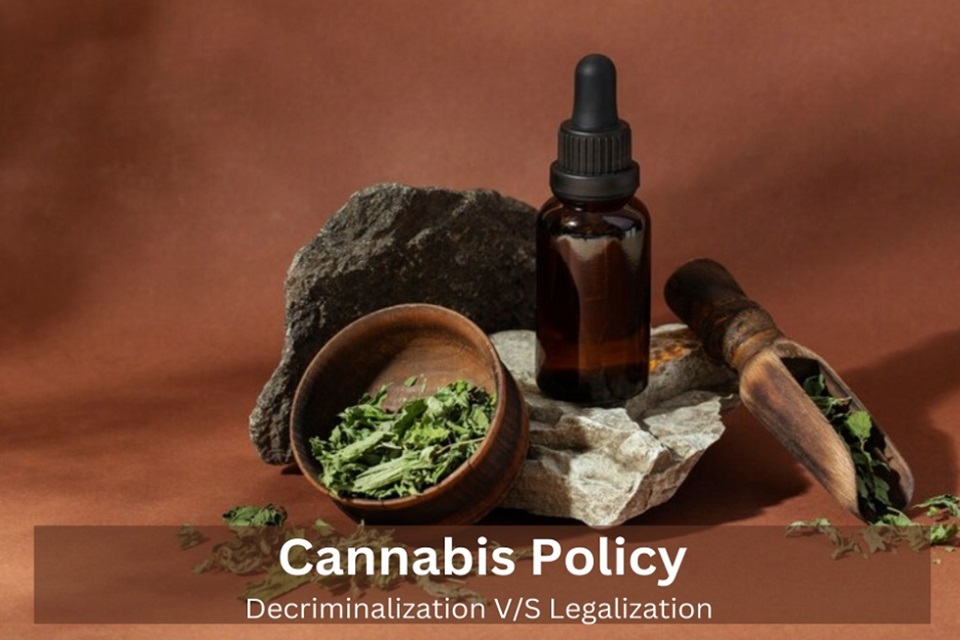
The debate surrounding cannabis policy often centers on the merits of decriminalization versus full legalization. While decriminalization is championed as a means to reduce criminalization and promote harm reduction, its effectiveness compared to full legalization is frequently contested. This article examines why decriminalization should not be regarded as a substitute for full legalization in addressing the complexities of cannabis regulation.
Understanding Decriminalization
Decriminalization entails the removal of criminal penalties for minor cannabis possession, opting instead for fines or education programs. Its primary aim is to alleviate pressure on the criminal justice system and mitigate punitive consequences associated with drug offenses.
Features & Positive Aspects
Decriminalization offers benefits such as easing law enforcement burdens, reducing non-violent drug-related incarcerations, and reallocating resources toward public health initiatives. By reframing drug use as a public health concern, decriminalization endeavors to facilitate access to treatment and support services for individuals grappling with substance abuse.
Limitations Of Decriminalization
Despite its merits, decriminalization fails to address core issues perpetuated by the illicit drug market. Criminal enterprises continue to profit from cannabis production and distribution, posing risks related to product safety and accessibility. Moreover, decriminalization lacks a regulatory framework for quality control, age restrictions, and taxation, leaving consumers vulnerable and unregulated.
Understanding The Complete Legalization
Complete legalization presents a comprehensive solution to challenges associated with cannabis prohibition. It enables governments to implement strict regulations, including quality control measures, age restrictions, and taxation. Legalization fosters economic growth, job creation, and public health and education investment. Examples from countries like Canada and certain US states demonstrate its potential to curb criminal activity and generate revenue.
Embracing Full Legalization
While decriminalization marks progress in drug policy reform, it is insufficient on its own. Without full legalization, the black market persists, endangering public health and safety. Legalization empowers governments to regulate cannabis, ensuring access to safe, regulated products. Embracing full legalization addresses the root causes of drug-related harms and promotes responsible cannabis use.
Final Verse
In conclusion, while decriminalization of cannabis may offer some benefits in terms of reducing criminalization and promoting harm reduction, it falls short of addressing the underlying issues associated with prohibition. Full legalization presents a more comprehensive solution, providing governments with the tools to regulate the market, protect consumers, and dismantle illicit activity. Ultimately, the decision to pursue decriminalization or full legalization rests with policymakers and the public, who must carefully weigh the potential impacts on public health, safety, and society as a whole.
FAQs (Very Lengthy)
How does full legalization address concerns about the black market?
Full legalization allows governments to regulate the production, sale, and distribution of cannabis, undercutting the black market by providing legal alternatives. Through licensing and oversight, authorities can ensure that cannabis products meet safety standards, while taxation can generate revenue for public initiatives. Legalization also reduces the criminal element associated with illicit drug trade.
What regulatory measures are typically implemented under cannabis legalization?
Regulatory measures under cannabis legalization often include licensing requirements for producers, retailers, and distributors, age restrictions on purchase and consumption, quality control standards for products, taxation policies, labeling requirements, and restrictions on advertising and marketing. Governments may also establish frameworks for tracking and monitoring cannabis cultivation and sales.
Are there any social or economic benefits associated with full cannabis legalization?
Yes, there are several potential social and economic benefits associated with full cannabis legalization. These may include the creation of jobs in the legal cannabis industry, increased tax revenue for public services and infrastructure, reduction in law enforcement costs related to cannabis enforcement, and potential improvements in social justice by reducing disparities in drug-related arrests and convictions. Additionally, legalization may facilitate access to medical cannabis for patients in need and promote research into the therapeutic benefits of cannabis.





